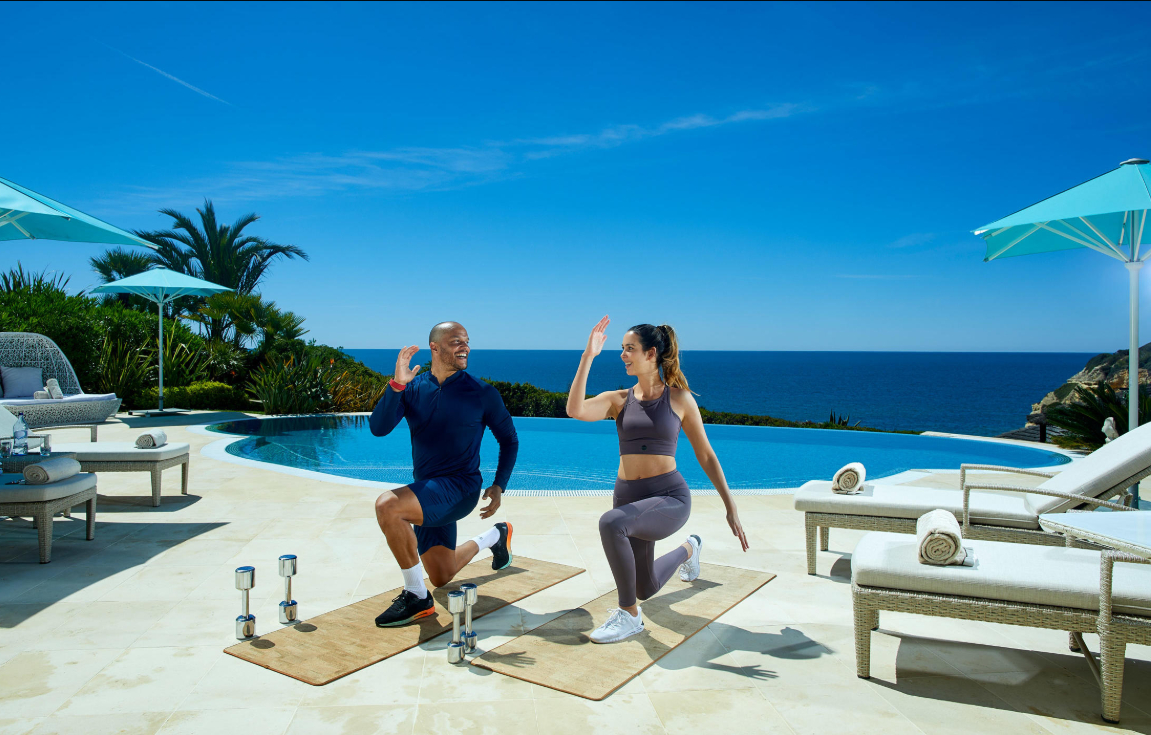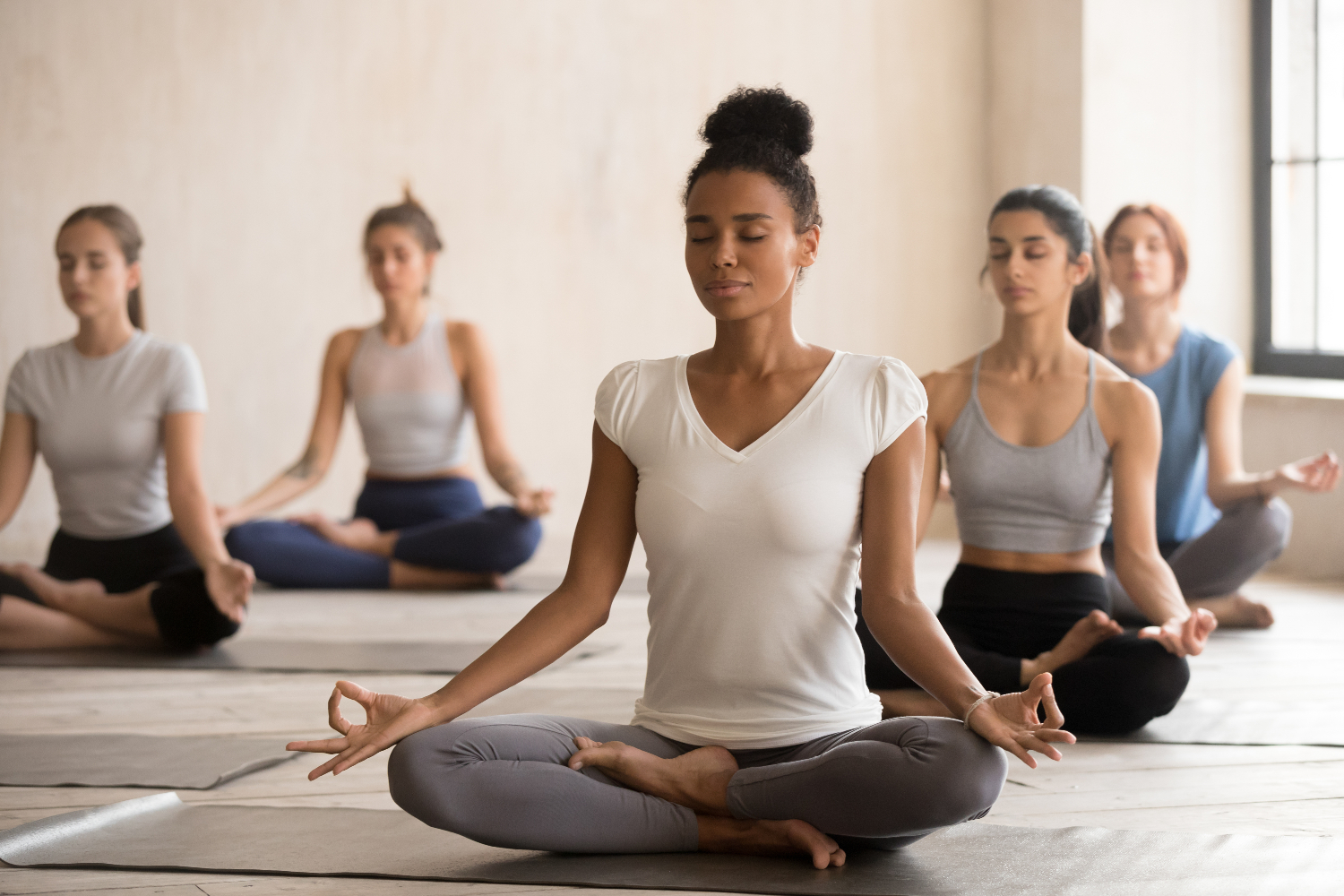All Wellness and Good
Health retreats are taking a holistic approach to wellness, with tailor-made escapes offering everything from sleep therapy and symbiotic spas to leadership skills.
by Harry Jameson
2020 will see a distinct shift in the wellness space away from trips that simply promise pure physical fitness. The modern retreat needs to be infinitely more than that. Next year will see the rise of destinations that work on wellbeing on every level – designed for people to destress, to sleep better, to combat anxiety and depression and to offer wellness in its truest sense, holistically. Health retreats are becoming ‘mental health retreats’ and will increasingly offer emotional and mental improvements along with physical.
In order to achieve this, forward-thinking facilitators need to go micro not macro. To reach more than the physical side of wellbeing and connect with clients, it’s important to create an offering that speaks to the niche and addresses specific needs. As an example, as a wellness consultant with a primary focus in the hospitality space, the last two major projects we have completed have been for two almost completely different propositions.

The first is Vila Vita Parc on the Algarve, where we have created Vita Wellness, a micro wellness brand that sits within the larger property offering. The key lead in product we have developed is a teenage wellness retreat, with a specific focus on the mental and emotional wellbeing of teenagers, giving them the educational tools to deal with the tribulations of modern life, as well as taking things back to basics and playing on sports fields rather than the PlayStation. Mindfulness workshops that assist with exam stress play a key role, as does learning key life skills such as leadership and cookery. A teenage camp in 2020 addresses emotional wellness as much, if not slightly more than the physical. I see the focus shifting towards both teenage and child wellness and the return of the ‘summer activity camp’ at the luxury end of the market.
Additionally, we recently designed Africa’s first sleep room at Ellerman House, a stunning 13-bedroom boutique property in Cape Town. A hotel room conceived to ergonomically induce greater, longer and more restful sleep, this is an enticing USP for those caught up in a busy digital world seeking rest. And as part of a wider retreat programme for 2020, we will be showcasing how movement and mindfulness, coupled with long, deep and restorative sleep, can be the greatest recipe for recovery not just for the body but for the soul.
My point here is that in the year ahead, the wellness needs of the high net worth traveller (and those of their children, for that matter) have significantly shifted, and an ever-increasing emphasis is being placed on mental and emotional wellbeing. Two of the most important and key components being sleep and recovery.
The superficial spa is over
A few years ago, hotel gyms took a bashing. It was no longer seen as adequate to have a couple of old Technogym treadmills in a forgotten basement corner of a luxury space – you needed to invest money and, more importantly, add space to your fitness facility. 2020 takes this trend beyond the gym itself into the (often adjoining) spa space. It is no longer good enough to have a large and well-equipped gym, you must offer the complementary recovery services in tandem. Does the spa menu match? or are you still a product-driven facility? Manicures are superficial and do not enhance one’s cognitive ability or reduce cortisol levels. How many blue light emitting divides are there in the room and what is contained in the mini bar? Is it just sugar and booze or something health enhancing? The global shift in spas away from the superficial is only set to increase in 2020 and beyond.

The business of wellness
Today’s business traveller demands more, and this trend will continue next year at both ends of the market. The first British hotel to guarantee its guests clean air recently opened in London’s Paddington area. The Inhabit Hotel has sensors that monitor air in the communal areas and a filtration system that promises to remove 95 per cent of nitrogen dioxide and particulates. The property has also created a ‘wellness experience’ for business travels at an affordable rate. Inhabit co-founder Nadira Lalji says, “We are still in the early stages of building our wellness programme but you’re correct to assume that corporates are increasingly offering employees larger stipends for wellbeing and, accordingly, you’d expect employers to proactively support their employees’ wellbeing when travelling. In a world of proliferating brands and intense competition in travel, differentiation and focus are key. As a hotel, our pillars of wellness are integral to our focus and lie at the heart of our activities, programming, F&B and staff training.”
Along these lines is the new Equinox Hotel in NYC, underscoring the fact that there is a market for modern executives who care more about mental and physical wellbeing than whisky and Michelin-starred food. They have taken the premium ‘wellness mini bar’ offering to the next level, ‘where even the condoms are healthy’ and, given the extreme premiums added to these products, many will follow suit. In 2020, mini bars will increasingly become ‘health bars’.
Practitioner makes perfect
Globally, ‘visiting practitioner’ programmes are rising and 2020 will see them continue to do so. Pioneered by Six Senses, the concept of having a globally recognised wellness practitioner take up residence in your property has become an appealing prospect for the brands I work with. You can see why. It means very low capital expenditure, high-revenue generation (approximately $300 per session with a typical 505/50 revenue share) and, of course, the endless social media exposure (most of these guys have a decent number of followers, but also the right type of following). The danger here is that the property does not retain any of the IP, and many practitioners are transient, crossing brands and diluting the offering. As a result, many brands are white-labelling their wellness products with more solid partnerships set to be revealed next year. For example, Bvlgari’s Workshop Gymnasium has proved that consistency of wellness offering really sells.
Wellness has often been seen as a great way to fill low/shoulder season rooms. However wellness is now taking more of a centre stage, as consumers demand to be able to follow programmes year round, not just when the aforementioned practitioner is ‘in town,’ therefore investment in programming, retreat and menu design is being made now, and we’ll see some of the results in 2020.

New players in the game
Regionally, things are changing too. The Algarve is positioning itself to follow in Turkey’s footsteps in becoming a medical tourist destination. Offering far more affordable medical and cosmetic procedures than can be found in the rest of mainland Europe, you can understand why. Watch out for an explosion in medical facilities that offer the ‘get your hair done/get your teeth done’ holiday over the next few years, as well as more comprehensive procedures such as hip and knee replacements.
Pop-ups are here to stay
The millennial traveller consumes the retreat product with an almost insatiable appetite, and this is set to grow even more in 2020. Providing a way to escape from a stressful day-to-day life and reinvigorate both physical and mental health, pop-up retreats are selling out and here to stay. Ibiza will yet again top the charts with its shoulder season (April/May/October) offering good value and a superb setting.
Harry Jameson is a personal trainer, lifestyle coach and founder of the Jameson Retreat.

